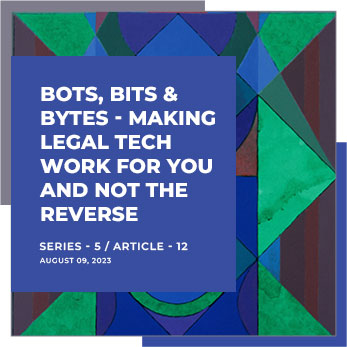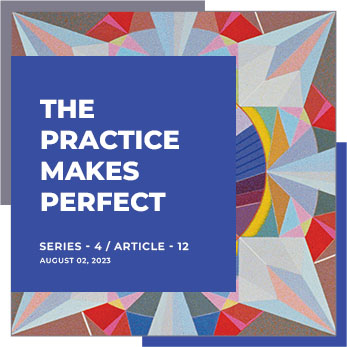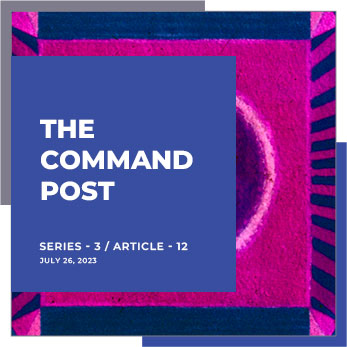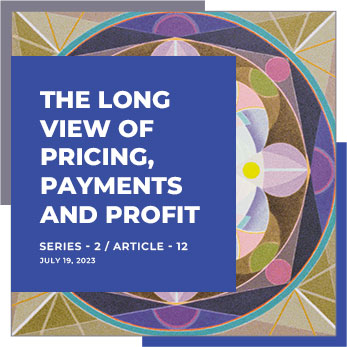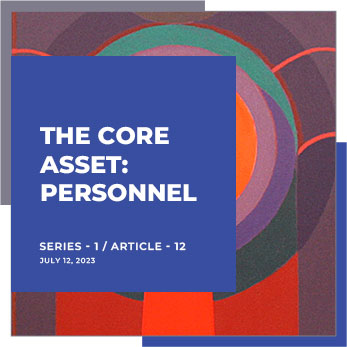“We just hired people as temps, and then we would evaluate them over the first few months and convert the most successful of them to full time. It was a great way to scale in those very early days when we needed a lot of work done very quickly. It also got us to hire people we probably would have otherwise not hired; people who didn’t necessarily interview well, people who didn’t necessarily have the right background that Google was always looking for, and they came in and did great work.”
In 1921 famed Swiss psychologist and psychoanalyst Carl Jung (1875-1961) published his seminal work, Psychological Types, which became the basis for analytical psychology.
In his book, he identified four main ‘functions of consciousness’: Sensation and Intuition (perceiving functions) and, Thinking and Feeling (rational functions.) Based on his studies, two American women—Katherine Briggs and her daughter Isabel Briggs Myers—developed the MBTI personality typology indicator (MBTI—Myers-Briggs Type Indicator), widely used by psychologists and staffing services to this day. Although six specific personality traits have been identified among lawyers, personalities found to be suited for freelance or temporary work might not fit so well as permanent hires.
An MBTI Primer
Myers and Briggs assigned four category types to the human personality: Introversion (I) or Extraversion (E), Sensing (S) or Intuition (N), Thinking (T) or Feeling (F), and, Judging (J) or Perceiving (P). By combining these letters (i.e., INTJ, ESTP, etc.), 16 recognized personality types could be identified.
Although it may seem logical to assume that a particular MBTI type makes one more suitable for the legal profession because of the many different functionalities across the profession, with different roles requiring very different responsibilities and skill sets, no single indicator guarantees a good fit as a lawyer. However, that being said, practicing lawyers very often possess the personality types emphasizing critical and analytical skills indicated by ISTJ (Introversion, Sensing, Thinking, Judgment) or INTJ (Introversion, Intuition, Thinking, Judgment).
Contract Attorneys And ‘Free Spirits’
Is there a particular personality type that gravitates towards contracted legal work as opposed to fixed-place, fixed-social surroundings permanency? Before we answer that, let’s refer to a common, non-psychology term used to describe certain entrepreneurial and even adventuresome individuals: ‘Free Spirit’. These people tend to crave newness, change, and creative stimulation to ward off boredom, and they maintain a real sense of passion about their work. The contradiction is that while, on the one hand, Free Spirits resist being boxed in, they at the same time depend upon the structure, or they might lose their enthusiasm.
Given the variations in drive and attraction, perhaps that may be why over half of the MBTI personality types fall into the Free Spirit category! But superior to all of them in terms of ‘Free Spirit’ is the ENFP who possesses a strong sense of independence and a notion of ‘doing their own thing.’
Attorney-Specific Hiring Traits
A criticism of the venerated MBTI (as well as the Caliper Assessment used to test personality and cognitive skills pre-employment) is that the indicators tend to lump lawyers together with all other job seekers. They, therefore, fail to analyze and account for those particular personality traits and patterns that indeed distinguish lawyers from other employment candidates, or, even lawyers suited for one area of practice over another. To address this, Dr. Larry Richard compiled psychometric data on lawyers’ personality profiles and found that of the 16 types, over 50% of lawyers fall into just four groups (some other studies claim six groups), and the INTJ type occurs five times more frequently among lawyers than in the general job candidate pool. If you thought lawyers tend to be ‘smart’, you’d be on the right track: the INTJ personality type is the only one statistically associated with elevated IQ.
The Hired Gun
One industry observer sneeringly characterized career legal temporary hires as ‘The Best of the Unemployed.’ In fact, those who are Free Spirits are overwhelmingly ‘unemployed’ [sic], at least from the 8 AM-10 PM six-day-a-week office grind, by choice. There is a reason why almost 50% of all law firm associates have left within three years of hire. One could argue that they simply didn’t make the partnership track, but for those who stay in the law—just not within the confines of their assigned partner—the real reason is the need to relate to all of those personality traits characteristic of lawyers but with the added dimension of renewal and work passion yielding fresh enthusiasm each month, quarter, or other short-term engagement.
Apologies to Thomas Wolfe
All of which begs the question: after tasting the best of both worlds providing access to your chosen profession in satisfaction of your lawyer personality type and the freedom to determine what your professional structure will be in fulfillment of your Free Spirit, can you ‘ever go home again’? Apparently not. In fact, ‘Temp-to-Hire’ has been described as nothing more than ‘an extended job interview’, rarely leading to permanent hiring. The Hired Gun performs well and impresses the staffing company’s client, but to be hired permanently?
The firm’s expectations for a new ‘grind-‘em-up’ associate will always be different from what they expect from the temporary hire; and, conversely, as described, the temp attorney is really not looking to ‘go home again’.
If anything, the personality type of the legal temp is to always be looking for ‘the next new thing.’
Executive Summary
The Issue
What personality types correlate with the practice of law, and what type seeks out career-long temporary employment?
The Gravamen
A particular personality type gravitates towards renewed temporary assignments because they satisfy the various drives of the ‘lawyer Free Spirit’.
The Path Forward
From both the firm’s perspective and the temp-to-hire’s perspective, going permanent with such a practitioner is generally not a good idea.
Action Items
Personality Trait Testing:
Several online MBTI evaluation tools exist that the lawyer can use to get a handle on his or her personality type assessment.
Know Your Passions:
If work-life balance never enters into your life equation, then pursuing a permanent position at a law firm may, in fact, be right for you; just bear in mind the statistical associate quit rate at three years.
‘Split Personality’:
Temp-to-hire may very well fulfill your dream of practicing law while at the same time gratifying the Free Spirit in you.
Permanently Temporary:
Enter into temp-to-hire work with your eyes wide open to the fact that while you may be highly valued as a temp, the dynamics could change drastically upon becoming a permanent employee.
Further Readings
- https://www.zenbusiness.com/blog/hire-temp-employees/
- https://uniqueemployment.com/why-going-from-temp-to-hire-isnt-as-easy-as-it-sounds/
- https://www.akkencloud.com/hire/
- https://www.lhh.com/us/en/insights/5-common-personality-types-for-lawyers-and-attorneys/
- https://www.mindbodygreen.com/articles/free-spirit
- https://abovethelaw.com/2014/05/deviations-from-the-norm-the-lawyer-type-and-legal-hiring/


